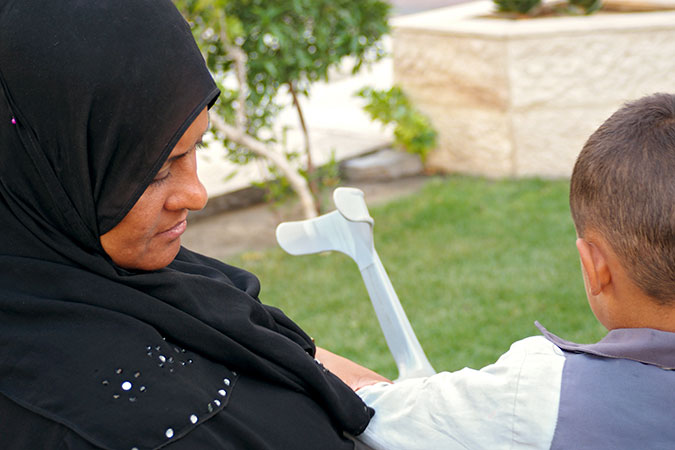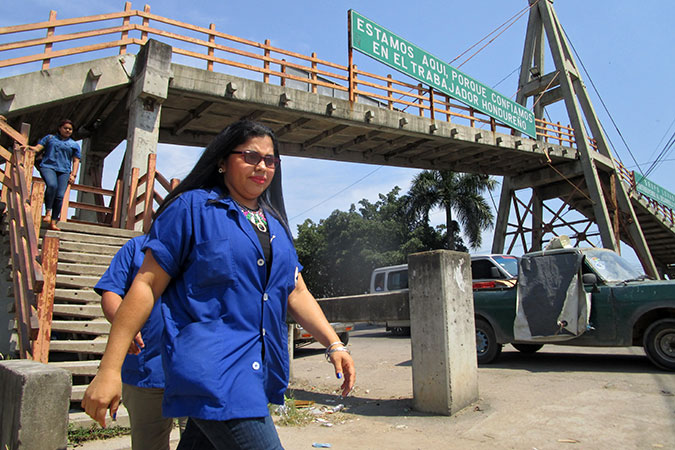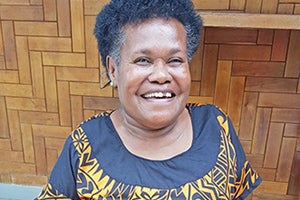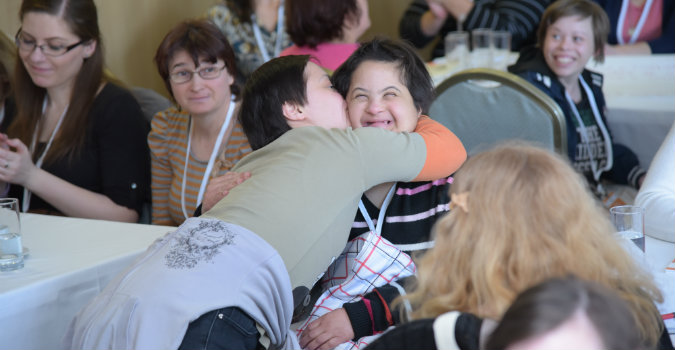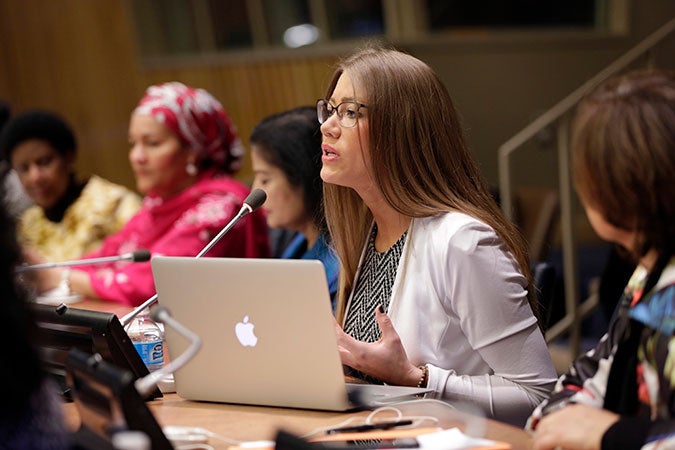Editorial spotlight: International Day of Persons with Disabilities
Date:
An estimated 1 in 5 women worldwide will experience disability in their lifetime. They are mothers, daughters, leaders, lawyers, entrepreneurs, scientists, and are vital members of their communities. This year, the International Day of Persons with Disabilities (3 December) will focus on the theme, “Transformation towards sustainable and resilient society for all”.
By empowering and working with women and girls with disabilities, we can build more resilient societies for all and deliver the promise of the Sustainable Development Goals, to “leave no one behind”. As reflected in the 2017 UN Resolution on the Convention on the Rights of Persons with Disabilities, women and girls with disabilities are among the most vulnerable and marginalized, because of multiple and intersecting discriminations they face based on their gender, age, disability and other factors.
For women around the world, gender-based discrimination and violence heighten the risk of acquiring a disability. At the same time, women with disabilities are more likely to be exposed to violence, abuse, neglect, or exploitation, lack access to education and vocational opportunities, housing and sexual and reproductive health care. For the ongoing 16 Days of Activism Against Gender-Based Violence, the UN Secretary-General’s UNiTE campaign is spotlighting the issue specifically, on 3 December.
Around the world, women and girls with disabilities are joining together to assert their rights to access education, technology and sustainable employment, and to a life free of violence and discrimination. They seek the opportunity to support themselves, to raise healthy families, and to contribute to stronger and more inclusive societies.
UN Women’s work with women with disabilities
Supporting women with mental disabilities in Serbia
The UN Trust Fund to End Violence against Women is supporting a project run by MDRI-S, a not-for-profit organization that advocates for the rights of women with mental disabilities, with a small grant. MDRI-S is the first organization in Serbia bringing the lives and narratives of women with mental disabilities living in custodial institutions to the attention of the public.
Video: Leave No Woman Behind | Juddy's story
Juddy was injured in an accident 15 years ago. She fought to find a way to earn a living. She is now a leader in her community, teaching other women how they can empower themselves and overcome poverty.
In the words of Jana Mustafa: “Disability should not stop anyone from starting over”
Jana Mustafa is a former employee of a local NGO and a survivor of violence. She lost her job due to an abusive marriage and experienced years of physical and psychological violence. As she hopes to begin a new life, Mustafa wants to open a small business to support her six-year-old son Jamal and prove that her disability is not an issue. Read more►
Textile workers in Honduras organize to defend their rights together
Although diagnosed with a disability due to excessive work and stress, Maria Gutierrez couldn’t convince her factory manager initially to lower the production outputs she was expected to deliver. But with the help of a feminist collective, supported by UN Women’s Fund for Gender Equality, she was able to defend her rights. Today she is known for her organizing skills among the textile workers of Honduras. The 61st session of the Commission on the Status of Women discussed promoting women’s right to organize as an integral part of women’s economic empowerment. Read more►
Ways to reduce violence against women and girls with disabilities
Lessons learnt from a unique Toolkit on Eliminating Violence against Women and Girls with Disabilities in Fiji are driving ideas to develop similar approaches in other Pacific countries. “When we started using our Fiji toolkit back in 2015 we didn’t realize how much it would really help our women and girls,” said Litia Naitanui, Rewa Branch President of the Disabled People’s Organization (DPO). Read More►
Ending violence against women with disabilities in Serbia’s custodial institutions
"Our rights were violated. We could not set our goals, make decisions, fight for us and others,” said Edith Vera, a woman who spent over 20 years in residential institutions in Serbia. A recent study, supported by the UN Trust Fund to End Violence against Women, has uncovered that women like Vera with mental disabilities often suffer multiple forms of violence. The research has spurred actions to improve care for women with disabilities. Read More►
From where I stand: “Technology sees skills before gender and disability”
Casar Jacobson, a disability rights activist and a UN Women Youth Champion, shares her personal story of living with hearing disability and persevering to carve out a place in the world of work. She stresses on the power of technology in ensuring that no one is left behind. Read More►
